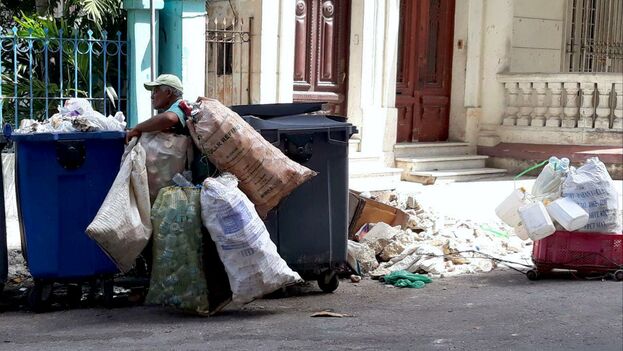
![]() 14ymedio, Yoani Sanchez, Generation Y, 28 June 2019 – A tourist finishes their meal in front of the sea and the wind carries off the disposable plate that a second earlier was on the table. A few yards away a local family enjoys a soft drink from a polyethylene terephthalate (PET) bottle that, shortly, will end up in the waters of the Caribbean. All of Latin America has one of its toughest environmental battles ahead, the one we must fight against the residue of single-use plastics that end up in nature, but there are nations where the first skirmish has hardly been engaged.
14ymedio, Yoani Sanchez, Generation Y, 28 June 2019 – A tourist finishes their meal in front of the sea and the wind carries off the disposable plate that a second earlier was on the table. A few yards away a local family enjoys a soft drink from a polyethylene terephthalate (PET) bottle that, shortly, will end up in the waters of the Caribbean. All of Latin America has one of its toughest environmental battles ahead, the one we must fight against the residue of single-use plastics that end up in nature, but there are nations where the first skirmish has hardly been engaged.
In Cuba, plastic bags in the markets have been an inseparable part of life for more than two decades. Considered almost a status symbol in the 90s when they began to be handed out with the opening of the first stores selling in hard currency, they are currently used for a wide variety of daily tasks: from repairing a broken pipe to head coverings on rainy days. You can see them floating in Havana Bay next to the bottles and beer cans in the dark waters that smell like hydrocarbons.
What happens on the island is part of the drama that is experienced throughout the continent. According to a United Nations report, one third of all waste generated in Latin American cities ends up in open dumps or in nature. Every day, some 145,000 tons of waste are disposed of incorrectly and only 10% is reused thanks to recycling or the use of various recovery techniques. Some countries, such as Chile, Peru and Costa Rica, have faced this situation with legal actions, while others, such as Jamaica and Panama, are beginning to draw up regional alliances to avoid greater evils.
But the problem has deep roots in education, environmental training and even into civil society’s autonomy or power to make itself heard. As long as millions of citizens in this part of the world continue to believe that pollution is something far away that occurs only in a distant garbage dump, or in remote oceans, and that they are safe inside their homes, little can be achieved. Nor can much be achieved if we persist in the mentality that places consumerism and the exhibition of material goods above the protection of the planet. If we continue to associate single-use containers with comfort, modernity or purchasing power… we will end up drowning – literally – in plastic.
In Cuba, with all markets under state management, with state control of all television channels on the island, and with a well-oiled state propaganda mechanism, the authorities could have declared a battle against PET bottles and disposable bags, popularly known as jabitas.
To date, however, the government’s attention to the serious problems of the waste that fills our seas and our countryside has been minimal. At this point, the importance of a civil society that promotes these campaigns is clear, as is the need for citizens to have an active voice when talking about the environment.
____________________________
This text was originally published in the Deutsche Welle for Latin America.
The 14ymedio team is committed to serious journalism that reflects the reality of deep Cuba. Thank you for joining us on this long road. We invite you to continue supporting us, but this time by becoming a member of 14ymedio. Together we can continue to transform journalism in Cuba.
